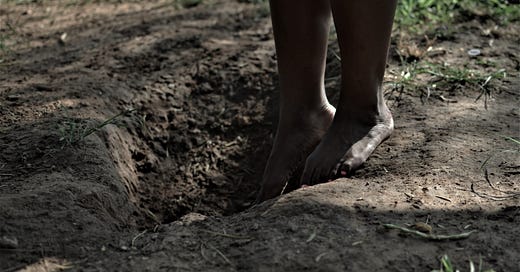Dysha and I first met in 2014 in Austin, TX while I was in graduate school studying Acupuncture and East Asian Medicine. I had the great privilege to be the photographer for her first modeling portfolio. Under the heavy heat of the August sun we trekked around the city to create, and along the way an instant connection blossomed. Fast forward six years, and our friendship continues to shape shift in interesting and surprising ways.
This intimate conversation is an invitation to listen, as well as an opportunity to learn from two women of color artists and mothers, as we discuss emotional health, intergenerational trauma, and liberation.
You can read an excerpt of the interview below, and view a sample of the photo essay here. The full interview and accompanying photo essay is available, in print, at Cordella Magazine.
This conversation has been condensed and edited. Listen to the audio version:
Christian: In your intimate experience with therapy and being with your emotions, what do you think is the sensory characteristic or the texture of anger? Does it look, feel, smell, or taste a particular way?
Dysha: The first thing that comes to my mind is bitterness. I think, in relation to anger, bitterness is a spectrum. My imaginative mind also goes to the colors red and black, as well as the possibilities of what anger can look like. Commonly we think of an angry little kid who has their arms crossed, and is throwing a fit. Or it can look like a big, scary monster. The character can change, and it really depends on how much you let it grow.
When anger comes in a quick moment, I get hot! My entire body is steaming. I understand when people use the phrase “you’re fuming”. [Laughs] It can come up from your toes, and it just hits you like a ton of bricks. It doesn't feel good. It doesn't sit well. And it's honestly really hard to ignore. If you feel it, especially if you're around people who know you and love you, even if you're trying to hide the anger, somebody in the room is going to smell it on you. It’s energy, and it radiates.
I think some people express anger or fear by being mean. Ultimately, when we sit with the emotion, the energy bubble that it creates gets smaller, and smaller. At that point you can start to understand yourself. It can be really dark to work through why you're angry.
Christian: Through your spiritual practice what has been the remedy to that darkness, and the anger itself? How do you transform it?
Dysha: I can be a bit of a control freak and I have an anxious mind, so when it comes to anger, I often wonder if I had enough control. When I think of things that have made me angry in the past, I worry that I might not have had enough control. Spiritually, the practice is about relinquishing control. Now, I thank God for the realization that I don’t need to have control over everything.
When I first started to explore my emotions, I would give myself bullshit answers. [Laughs] I’d pass certain feelings off as just having a bad day. I've learned to go deeper with my feelings, and become curious with myself. I just keep asking why. That's what has really helped me.
What's been most surprising for me on this journey of working through my emotions is understanding other people. That has also helped me more than I ever thought it would. When you go inward it helps you to have more empathy for others.
The exciting part about this internal work is knowing that I'm not stuck with feeling angry. I can move through it. Yes, it's going to come up again, but knowing that I can continually work through it, and be inquisitive with myself, that's what's nice.
I'm proud of myself for being able to be so inquisitive because a lot of the people in my life have not been able to do this for themselves. In the beginning I often wondered why the hell aren't the people in my life doing this!? But it's scary. Some people go their entire life never knowing themselves. For whatever reason, God decided that I should look further. That's a driving force that helps me to keep doing this work.
Christian: We touched on this before, and I think it’s worth revisiting. I’ll try to ask in a different way. I wonder, once we take up the space to connect with our anger, what do you think is possible? What do you envision? Specifically for black women, as well as the greater black community.
Dysha: I think freedom is possible. I think joy is possible. I think a sense of peace is possible. As individuals and as a community, we are looking for people to just acknowledge the fact that black people have not been free. Even now, we're not fully free. Also knowing that other people may never acknowledge this truth. What happens then? We're going to have to free ourselves from within ourselves.
When I think of us getting free, and not holding on to things, we're freeing not only ourselves, but we're freeing other people. We free even those who will not acknowledge. This is how we can really be our whole selves as a people. We're still going to deal with anger. But we can seek out the tools to work through it and walk through it, and to get on the other side of it. Every time.



